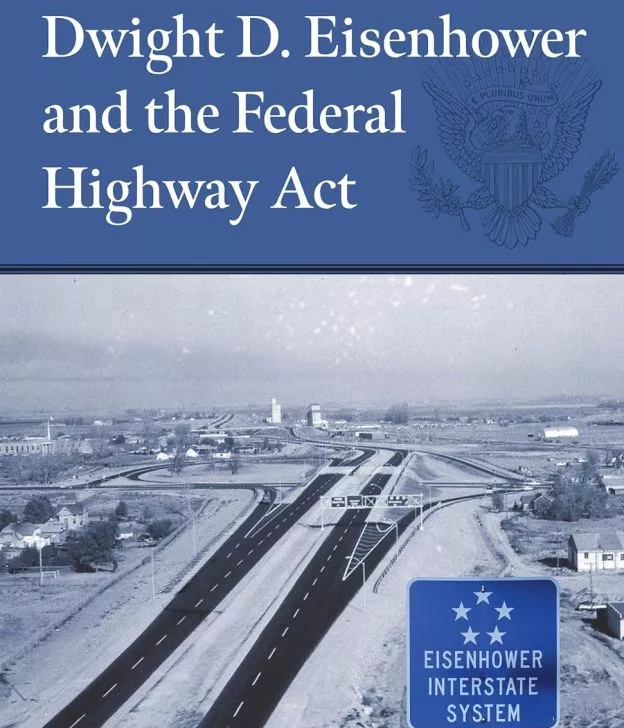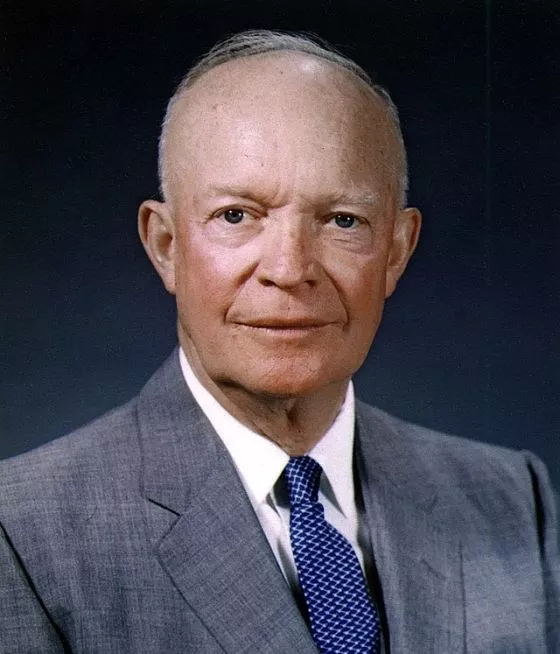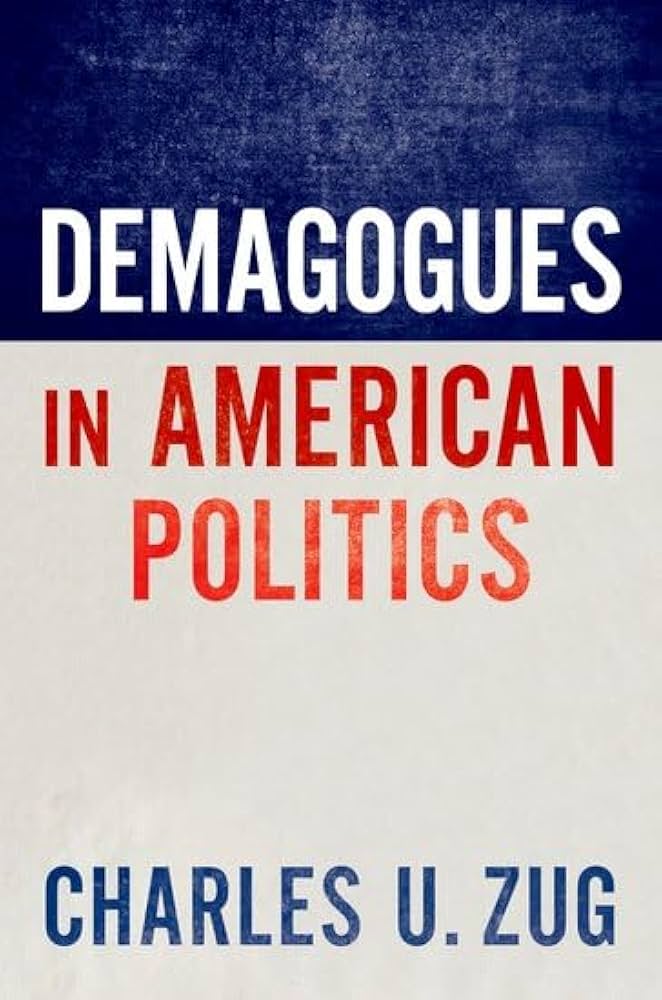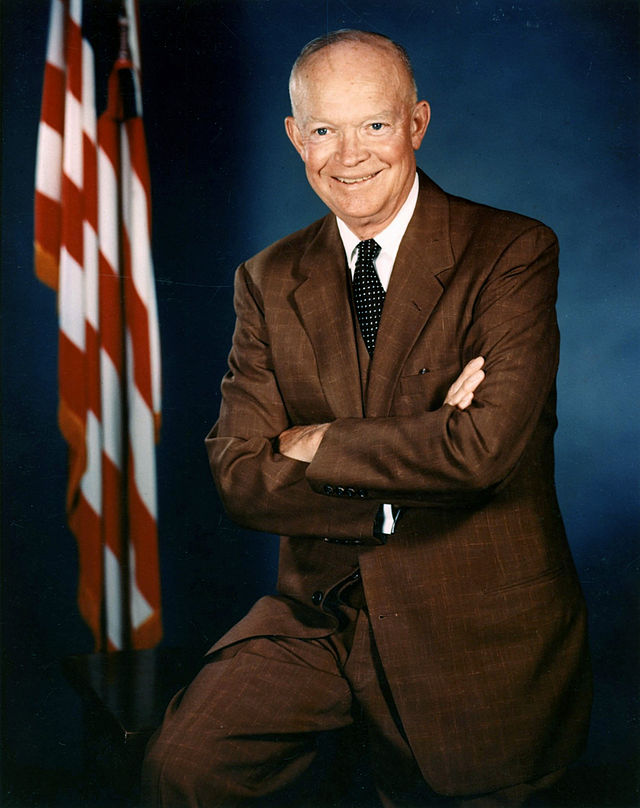
An interview with Charles Zug
JMC Resident Historian Elliott Drago sat down with JMC Miller Fellow Charles Zug. Dr. Zug teaches at the Truman School of Government and Public Affairs at the University of Missouri.
ED: What inspired you to become a political scientist?
CZ: I’ve been interested in politics as long as I can remember. My first political memory is of the Clinton-Lewinsky scandal. I was only 5 or 6 at the time and had no idea what it was really about, but I could tell people thought it mattered. Then Bush v. Gore, 9/11, and the Iraq War. Politics seemed to be where the really important stuff happened.
And yet, for most of my life (through college and into grad school), I found politics frustrating to discuss and think about, because I couldn’t figure out how to divorce foundational political questions (questions about justice, leadership, legitimate authority, the common good, etc.) from the narrowly partisan disagreements I had internalized growing up. Initially, I turned to political theory and the study of the “Great Books” in college, in part because I thought I could understand politics better if I encountered it at a very high level of abstraction, far distant from the “real world,” where, in my view, merely partisan disagreement held sway.
I thought I could finally understand politics by going straight to first principles—and staying there.
The problem, though—which I discovered when I went to grad school—is that philosophical debates of that kind become repetitive and unproductive when they aren’t rooted in tangible political problems: problems of authority, decision-making, institutional and constitutional design, leadership, political culture, what have you.
Political theory, while essential, is of limited use if its insights can’t be corroborated through mutually verifiable phenomena.
CZ: Otherwise, you’re just having the same argument over and over again about what the text means, or what point a particular hypothetical example or thought experiment best supports. Without rigorous analysis of historical and contemporary politics, theory tends to devolve into speculation and navel-gazing—the same way atheoretical political science becomes purely methodological, lacking substantive purchase. You need both.
So at the end of the day, I’d say I’m a political scientist because I think that’s how I’m best positioned to bring theory and practice together into genuine insight.
ED: The term “American Political Development” has become so well-known to political scientists that they abbreviate it APD. How would you explain “American Political Development” to non-academics?
CZ: APD tends to get used in two different, though ultimately related, senses. In the more informal sense—what I sometimes call “lowercase apd”—APD just means political science research that uses history—historical cases, historical changes, historical people and movements, you name it. That might sound odd, but for a long time (over half of the twentieth century), American political science was largely ahistorical. The idea was that the so-called behavioral revolution, and the accompanying turn to positivistic social science, made history irrelevant because studying politics was about discovering universal, trans-historical behavioral laws. If that research assumption is correct, then what you really need is not historical development or case-studies, but randomly sampled data; and for logistical reasons, the most reliable data is going to come from contemporary sources. History drops out of the picture.
APD in the stricter, subfield-specific sense refers to the study of how political authority and institutions are constructed historically, through time.
What makes APD unique within empirical political science is that it takes a critical and deconstructive approach to real-life politics. It cares about how the political world we inhabit—its structures, norms, and assumptions—come into being through the interplay of human agency, collective action, and impersonal processes—and in turn give rise to new modalities of political order.
APD came into being through the efforts of pathbreaking scholars like Karen Orren, Stephen Skowronek, Rogers Smith, Richard Bensel, Theda Skocpol, and my advisor, Jeffrey Tulis. Originally, it started as an elaboration of ideas developed by an earlier generation of scholars, folks like Theodore Lowi, Walter Dean Burnham, Nelson Polsby, and Herbert Storing. Those scholars had begun articulating a critique of the mid-20th century positivist assumption that understanding politics means finding equilibrium—in other words, reducing politics to stable laws of behavior and interaction that can reliably explain particular outcomes. In contrast, APD is comfortable with the idea that politics is always in the making, and is consequently open-minded (towards normative, theoretical, and methodological questions) in a way positivist social science often isn’t. APD is, as Dan Galvin and Chloe Thurston recently argued, “problem-oriented” as opposed to methods-oriented, which means it can tolerate a range of views about the nature and causes of political development without losing its integrity as a subfield.
Did you know?
ED: Tell us about your new book, Dwight D. Eisenhower and the Federal Highway Act. What is your thesis?
CZ: The thesis of that book is that the 1956 Highway Act is often remembered as an Eisenhower success, but it wasn’t. It was a success, to be sure; but it’s the Congress and the Constitution, not the Eisenhower presidency, that deserve credit for that success.
Most people think Ike orchestrated the whole thing—wrote the program and got Congress to pass it. In fact, Eisenhower had the plan written in secret within his administration, before the Congress rejected it in 1955. Then Congress turned around and passed their own highway act the next year, in 1956, while Ike was in Colorado recovering from a heart attack. The congressional program served as the foundation for the interstate system we now have, including the Highway Trust Fund, which is often praised as one of America’s best public policy achievements. That’s why it was a congressional success.

It’s a story of constitutional success, too, because Ike, like many other modern presidents, tried to short-circuit the Constitution’s legislative process, which is deliberately pluralistic in that it requires the consent of independently elected legislators and is not just a unilateral presidential decision. Sensing a frustrating legislative fight (the Democrats had narrow majorities in both chambers starting in 1955), Ike had a plan cooked up within his inner circle and presented it to Congress as a fait accompli, without asking Republicans or even GOP leadership for substantive input.
Long story short, Ike’s plan did not pass the smell test.
CZ: It was a genuinely bad plan. Ike, a Republican, had stated publicly in his campaign that he didn’t want to increase the deficit or raise taxes. But he also wanted a big new popular program. (Sound familiar?) So he created a presidential advisory committee consisting of Republican CEOs and one labor leader. The committee, headed by Ike’s old army buddy, Lucius Clay, wrote a plan that would have created a government corporation authorized to issue bonds to raise funds for highway construction. The problem, which Congress and members of Ike’s own administration immediately seized on, was that the plan said the bonds would not count as a federal debt. That made no sense—how could the government authorize the sale of debt whose repayment it would not stand by? Eisenhower’s Comptroller General—the head of the General Accounting Office and the federal government’s chief auditor—who’d been Eisenhower’s own appointee, called the plan “illegal.”
ED: What types of sources did you consult during your research?
CZ: In terms of primary sources, I started with a few excellent books on American highways written by transportation scholars (I discuss these in the book’s bibliographic essay). These books pointed to the archive at the Eisenhower Presidential Library in Abilene, KS. Unfortunately, the library was closed the whole time I was working on the book due to Covid, so I wasn’t able to comb through the archives myself. However, the kind staff at the library, particularly Linda Smith and Ariel Turley, scanned and sent me all of the documents I wanted, and then some. All of these files are available on my personal website.
ED: What does your book teach Americans about the separation of powers?
CZ: I learned what the separation of powers is really about from my advisor, Jeff Tulis. Jeff developed the insights of his teacher, Herbert Storing, into a pathbreaking new approach to constitutional design.
The Eisenhower book exemplifies that tradition of constitutional theory.
CZ: In the perspective of that tradition, constitutional authority is separated institutionally not to hobble or frustrate the government (as is traditionally assumed) but to make the government better at doing its job. Separate institutions embody different perspectives of democracy (rights, consent, security, etc.), and conflict between these institutional perspectives generates disagreement and argumentation about how decisions should be made and how problems should be solved.
For that reason, I see the highways case as a constitutional success story. Eisenhower did what many presidents have been tempted to do, namely circumvent rather than work through the Constitution’s purposeful design in order to get exactly what he wanted. The Constitution punished him for that. But it didn’t just punish him. In the very next session, Congress came back with a different version of the same plan and, having consulted a much broader range of interests and perspectives (as Congress is designed to do), passed it. The outcome—the Highway Trust Fund—is a hell of a lot better than the crazy plan Eisenhower and his cronies had originally endorsed. More broadly, the Constitution generated conflict—good conflict—that did not end in gridlock but rather gave rise to a public policy output that was better than what any particular individual or party wanted at the input stage.
ED: Describe your favorite research “rabbit hole,” and the results of that quest.
CZ: I live for scholarly rabbit holes. For me, that’s a feature, not a bug, of good research, because it’s the evidence leading you and not the other way around.

My favorite rabbit hole involved Daniel Shays, of “Shays’ Rebellion” fame.
I started poking around Shays’ Rebellion early on in dissertation writing because I was interested in how the American founders thought about and dealt with the phenomenon of demagoguery. I thought Shays would turn out to be a paradigmatic demagogue and a helpful example of applied theory.
Come to find out, Shays played a relatively marginal role in that event, and yet was retroactively saddled with the reputation of “demagogue” as part of a broader effort by elites to discredit and discourage egalitarian mobilization. Figuring all of this out became a kind of detective case for me. I had to track down and corroborate all of these different reports of what was happening in Western Massachusetts during 1786-87. It was challenging but also extremely gratifying work, and I got two publications out of it: an article and a chapter in my first book.
ED: Presidential rankings are all the rage these days. Where would you rank Eisenhower, and why?
CZ: Presidential rankings are interesting in the abstract but difficult to execute in practice. Scholars usually fall into one of two bad habits. Either they base their judgements on vague impressions and subjective, unarticulated criteria, or they pick overly simplistic criteria such as “number of laws passed,” “battles won,” etc. The latter aren’t insignificant, but they also aren’t definitive, for the simple reason that it’s very difficult to say what makes a good president in the first place. Just because a bunch of laws were passed or a bunch of battles were won during a given presidency doesn’t tell you much. Maybe the laws were bad or the war was unjust, or the president didn’t even effect those outcomes. There just isn’t a clear template out there that we can measure presidents against. It’s an incredibly difficult, complex job, and it’s also a political job, which means people can reasonably disagree about the goodness or badness of the same presidential decision.
Another tendency of scholars is hagiography: singling out the handful of “great” presidents and not really fretting about how the others stack up. Among others, the problem with this is that most people don’t really understand what makes the “great” presidents—Washington, Lincoln, FDR—truly great.
Ike is a complicated case because his presidency is unusually shrouded in mythology, and mythology makes frank assessment difficult.
CZ: Scholars often praise Ike for being above party and respectful of constitutional norms and procedures. Both are wide of the mark. While it’s true he had a difficult time relating to other Republican elites, Eisenhower took active steps to rebuild the Republican Party in line with his own priorities. He definitely was not “above” party. As for the Constitution, Richard Neustadt was correct when he said Eisenhower was not as skillful at manipulating the process to his liking as FDR had been and as LBJ and Reagan would be—but that was not for want of trying. Indeed, as I argue in my book and elsewhere, Ike exhibited many of the same executive-aggrandizing behaviors that other characteristically “modern” presidents did. Unlike Fred Greenstein, though, who thought Eisenhower was good at sneakily getting his way, I conclude Ike wasn’t very good at pulling them off.

On the whole, I think Eisenhower was a good president who had some very confused ideas about what the job of the presidency consisted of. Ike was very self-confident, and he had an inordinately hard time understanding why other people didn’t see things the way he did. He believed above all else in the purity of his own motives, and when other people disagreed with him, he couldn’t help but interpret their disagreements as evidence of underlying obstinacy or even malice. This quality made him both an obtuse person and a rigid president. At the same time, he was at his core committed to constitutional government, which meant that though he might push for his desired outcomes, he had an intuitive sense of what the honor and integrity of his office and the rest of the system demanded. In some ways, his demeanor made him well suited for the 19th century presidency, where presidential ambition could be gratified more quietly and modestly, without laboring under the expectation of transformational leadership. The problem is that Eisenhower occupied the presidential office not of Millard Fillmore and Franklin Pierce, but Woodrow Wilson and Franklin Roosevelt. He was incentivized by his institutional circumstances to practice a kind of politics that he didn’t naturally take to. That made him very awkward in his role—he wanted to use the modern presidency to gratify his ambitions, but he didn’t have the ability to make the office really work for him.
ED: What’s your next project?
CZ: I’ve got a few irons in the fire right now, but my main one is a book that reinterprets American federalism as a construction of politics. Most people think of federalism as a core feature of the US Constitution, and as the generator of much of our political development, but I think that’s wrong. I think federalism is basically alien to the Constitution—neither the word “federal” nor any of its immediate derivatives occur in the Constitution or its amendments—and that it therefore had to be deliberately chosen and constructed. The book is about that construction.
ED: What has your research taught you about America’s founding principles and history?
CZ: What a huge question!
I think my biggest takeaway has been not to study something just because other people have studied it before you.
CZ: It’s easy for scholars to write and teach about a topic, such as the American founding, simply because it’s a part of the “tradition.” That’s a recipe for stale thinking. If you’re going to study the founding, you need to think long and hard about why it’s important, what unique insights it provides. That’s what I’ve learned in trying to emulate my best teachers.
ED: What’s one thing you wish that every student knew about the American political tradition?
CZ: That you can learn a lot from the American founders, even though they were flawed and made compromises they shouldn’t have. Those two things can both be true at the same time. If it was only possible to learn from perfect human beings, we would never learn anything.
ED: Thank you for your time and insights!
Elliott Drago serves as the JMC’s Resident Historian and Editorial Manager. He is a historian of American history and the author of Street Diplomacy: The Politics of Slavery and Freedom in Philadelphia, 1820-1850 (Johns-Hopkins University Press, 2022).
